Computer Science Research PhD
Key information.
The Department of Informatics has an extensive research profile, with major externally funded projects, a strong publication profile and significant research activity.
Our research is organised around our research groups, and you can find details of the range of current research projects and interests on the Department's research pages .
If you are interested in joining us to undertake PhD research, you should identify topics and academic staff in your area of interest. If you cannot find your chosen topic or area on our individual research section or subgroup pages, contact a relevant member of academic staff for further information and then follow the application procedure.
Current number of academic staff: 79
Current number of research staff: 37
Head of department: Professor Luc Moreau
Course intake: Approximately 25-30 per year
Research income
Currently, the Department attracts approximately £4m in research funding annually.
Recent publications
All academics in the Department publish regularly, with well over 100 publications per year.
Partner organisations
We have strong links with industry, government and other academic institutions. Our research has been supported by several companies from the aerospace, automotive, financial, IT and telecommunications sectors.
Recent events
We host several workshops and conferences and other regular research meetings. Please check our website for forthcoming events.
- How to apply
- Fees or Funding

For funding opportunities please explore these pages:
- List of funding opportunities
- External funding opportunities for International students
- King’s-China Scholarship Council PhD Scholarship programme (K-CSC)
UK Tuition Fees 2023/24
Full time tuition fees: £6,540 per year
Part time tuition fees: £3,270 per year
International Tuition Fees 2023/24
Full time tuition fees: £28,260 per year
Part time tuition fees: £14,130 per year
UK Tuition Fees 2024/25
Full time tuition fees: £6,936 per year
Part time tuition fees: £3,468 per year
International Tuition Fees 2024/25
Full time tuition fees: £30,240 per year
Part time tuition fees: £15,120 per year
These tuition fees may be subject to additional increases in subsequent years of study, in line with King's terms and conditions.
- Study environment
We are a department with many internationally recognised researchers and visiting academics, large groups of PhD students, research assistants, national and international projects, collaborations with other departments as well as links with industry. We offer an exciting environment and excellent opportunities for research.
Our PhD students have access to good library facilities, designated PhD offices within the Department where PhD students can dock an assigned laptop for use throughout their studies, Regular group seminars are organised providing PhD students chance to showcase their research and receive feedback from academic staff and peers, and college-based training in transferable and research skills.
The Department is located on the Strand Campus, in the heart of central London, close to the cultural activities of the West End and the South Bank, to the major departments of state at Whitehall, and to the leading financial institutions of the City, and within easy reach of major transport links. Our facilities are within easy reach of the British Computer Society and the Institute of Engineering & Technology (and the IET Library), with access to a formidable collection of scientific journals and other technical material.
The Department moved to the historic Bush House in the summer of 2017, featuring state-of-the-art teaching and office spaces. Although the Department is fairly large in size, there is a friendly and inclusive culture, with regular social and celebratory events to bring staff and students together. Our staff and students come from all over the world, which provides a rich environment for teaching and research. Diversity is positively encouraged - find out more about the work we’re doing to ensure an inclusive and supportive working environment.
The scope of our research is defined by the interests of our research groups.
Postgraduate training
Faculty and College induction courses are scheduled at the beginning of your degree to prepare you for life as a PhD student. All students are required to complete 10 days of training each year. There is a centrally provided programme of related and transferable skills training coordinated by the Centre for Doctoral Studies .
Research students are also encouraged to submit papers to conferences, and we try to provide financial support for them to travel to present their papers.
Our research students are also encouraged to teach alongside their studies to help prepare them for a potential future career in academia.
- Entry requirements
- Research groups

Algorithms and Data Analysis
The group develops algorithmic solutions and concrete implementations for various applications.

Cybersecurity
The group studies design, modelling, analysis, verification and testing of networks and systems.

Distributed Artificial Intelligence
The group explores the use of AI in social and economic contexts where an intelligent entity may be interacting with other entities.
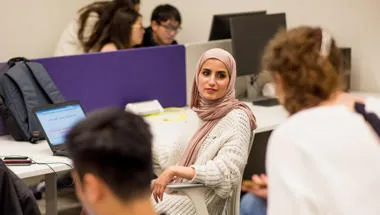
Human Centred Computing Research
The group is concerned with the design, development and evaluation of human computer systems.

Reasoning and Planning
The group focuses on the fundamental AI challenge of creating, representing and reasoning.

Software Systems
The group studies design, modelling and engineering of software systems.
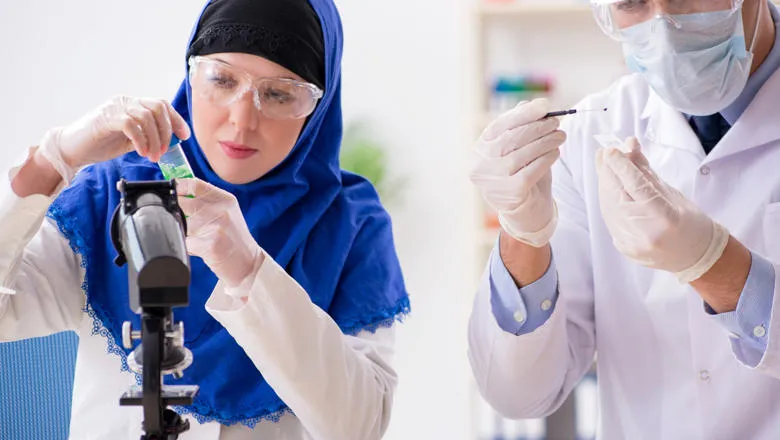
Centre for Doctoral Studies
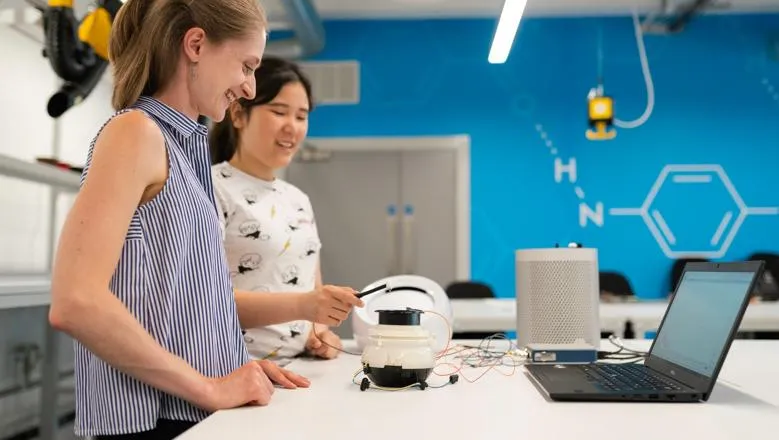
NMES Graduate School
A supportive and engaging environment for PhD students

Funding & Scholarships for PhD students
The Centre for Doctoral Studies helps secure funding for students...

NMES Graduate School: Virtual Open Event Session One
The NMES Graduate School Virtual Open Events for prospective postgraduate...
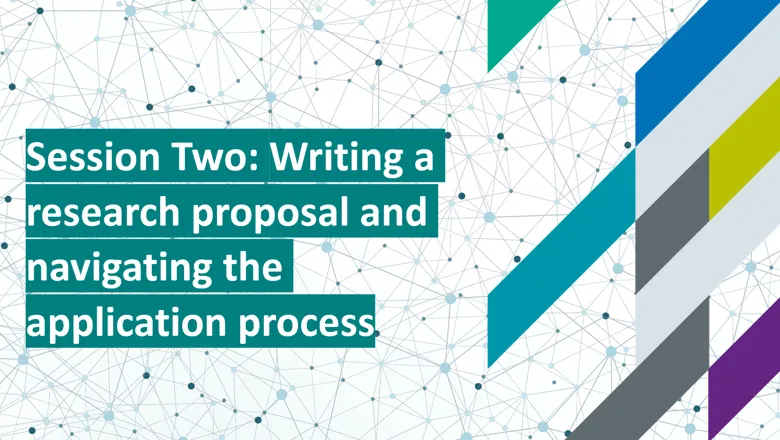
NMES Graduate School: Virtual Open Event Session Two

Between the Acts
Student blog from the faculty of arts & humanities at king's college london, applying for a phd in culture, media & creative industries.
September 23, 2020 Hannah Hungerford Academic blog posts , Postgraduate Study 2

What is a PhD?
A PhD (Doctor of Philosophy) is the highest degree we offer and effectively qualifies you for an academic career, as well any kind of career that demands high standards of research, writing, thinking, speaking, teaching, organisation, insight and a broad encompassing perspective on the topic that one decides to specialise in. These notes are meant to help you decide whether and how to apply for Doctoral study with us.
Briefly, completing a PhD involves researching and writing an original research thesis of up to 100,000 words on a topic which makes a new contribution to knowledge either by presenting significant new facts or by interpreting existing information in an important new way.
It’s written in English, must be entirely your own work and be completed to publishable standard. The typical time limit from start to finish is three years of full-time study. You would additionally be expected to make a full contribution to the intellectual life of the department.
A PhD involves, essentially, independent study under the guidance of a supervisor who is an existing expert in your chosen field. It isn’t a “taught” degree, so you do need to be prepared to conduct your own research with guidance, possessing sufficient expertise in both your subject area and the scholarly process to begin work at an advanced level from the outset. To ensure that you create a superior academic product that will help you win a place in the currently overcrowded academic job market (or wherever you choose to deploy your talents after earning your PhD), you want to be ahead of the game.
Initially, Doctoral students are registered as MPhil/PhD students. After between nine and 18 months, they submit a substantial package of written material demonstrating their research progress so far which is read by a panel of academic staff and if all goes well they are formally upgraded to full PhD student status.
At the end of the full three years, you submit your completed, bound thesis to the university which is examined via a viva voce , in which you are questioned intensively on your work by a panel comprising two specialist examiners (but not your supervisor). If this goes well, you have earned your PhD. Congratulations! You can now call yourself “Doctor.”

Before you even think about applying for Doctoral study, you need to be convinced yourself that you possess the motivation and dedication to work independently at advanced level for three years. Put another way, you have to really want to do this in order to survive the whole process–let alone actually to enjoy it!
You should only consider applying for a PhD place if you are genuinely on fire with your subject. On top of that, you also need to be honest with yourself about your own powers of organisation, time management and self-discipline. It is this, as much as intellectual shortcoming, which has led students to disaster in the past. Completing a PhD is a demanding logistical as well as a scholarly endeavour. Ignore this at your peril.
Also, do think about what kind of career or job you are aiming for before applying. Many employment options exist for CMCI PhD graduates (academia, curators, policymakers, public sector, private sector, cultural management, marketing, etc., etc.). The more forethought you assign to this topic before beginning a PhD, the better your eventual chances of success. You want to have a long-term end goal in mind before beginning; it will help motivate you and increase the chances of your success.
Tips for your Research Proposal Here are some tips for your research proposal which will be at the heart of your application.
Ideally your research proposal should be a document of no more than four pages in which you explain precisely the field of study that you want to contribute to and the current research gaps that you propose to fill. Tell us clearly what you want to do and how you propose to do it.
When formulating your research proposal, do think about your audience and ensure your topic is an interesting one to people in your field, that it will stand out in a crowded marketplace, and entice people to want to hear more about its contents, which will provide a better probability of your being hired in the job market and being asked to present your work in various venues.
No one expects any PhD student to pen a best seller or anything close to it, but when an academic can present work that commands attention and curiosity, it can only be beneficial. Such PhD dissertations also tend to secure more of the valuable postdoctoral fellowship funding often needed to transform one’s dissertation into a book or monograph, or to get started on one’s next major writing project. The ability to win funding is often viewed as a promising trait for a new PhD holder in the job market.
In addition to the research proposal described, please include a full curriculum vitae (CV) with your application, which will help us to get a far more detailed view of you and your accomplishments than the official form alone permits.
Matching your research interests with ours A vital quality of your research proposal is that the work you want to do lies within the existing research interests of the academic staff here.
Each application to us is considered on its individual merits. It is not simply a matter of our picking “the best” applicants, but also of matching proposed projects with our existing expertise here.
It’s worth reminding yourself of our major research interests as described on the departmental website . Here, you will also find details of recent publications by CMCI academic staff, together with mini-biographies of the people themselves and their particular research interests to get the right fit.
If you find a member of the CMCI staff that seems to share your research interests with your own, and could perhaps serve as the adviser for your proposed PhD dissertation, you can email that person and ask them if you may discuss or email them about the possibility of their becoming your PhD adviser. Please only contact one or two staff members at a time.
- Contact the potential supervisor to establish if they might be interested in taking your enquiry any further.
- the topic/issue they propose to research
- the rationale for doing so (including its importance and originality, as well as any gaps in the literature)
- the proposed methodology (i.e. what, why and how?)
- a prospective chapter outline, and
- a concluding section showing why this research should be conducted at CMCI
Please also send a latest CV with your proposal.

It’s a sad fact, but amidst all this talk of intellectual inquiry, you will also need to figure out how much all of this is going to cost. We strongly advise that you give very serious thought to how you will be able to pay not only the tuition but also the living costs for a full, three-year commitment to advanced study in central London. It would be a disaster all round if you were to run out of funding without completing your degree. It is up to you to research any suitable funding and your eligibility for it. You might also want to investigate national and international funding bodies including from your own country. We regret that we do not offer financial support as a department.
What happens once we receive your application? Once we receive your application your proposed supervisor will give detailed consideration to your proposal. If appropriate, they will contact you to arrange a short interview to discuss your application. On the basis of this, they will assess the value, interest and practicality of your project and whether or not they are interested in becoming your supervisor. If the supervisor wishes to take the application forward, your proposal will then be formally reviewed by the CMCI Postgraduate Research Student Recruitment panel and a decision taken at Departmental level.
This decision-making process can take some time but whatever the outcome, you will finally receive a message giving you the result of our decision.
We hope this guidance has been useful to you and helped to answer some of the questions we are frequently asked by applicants.
For more information on the CMCI PhD check out the King’s webpage .
Learn more about other Arts and Humanities students and their experiences as PhD students at King’s .
- Media & Creative Industries
- postgraduate degree
Quite interesting. I truly loved visiting your site. Thanks.
Thanks, I have been looking for details about this subject for ages and yours is the best I’ve discovered to date.
Leave a Reply Cancel reply
Your email address will not be published.
Save my name, email, and website in this browser for the next time I comment.
Copyright © 2024 | WordPress Theme by MH Themes

Joint PhD Programme with King's College London
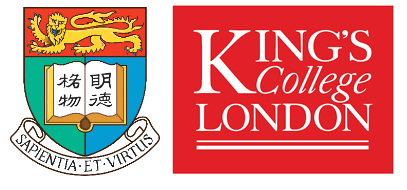
Background of King’s College London
King’s College London was founded in 1829 and is one of the top 10 universities in the United Kingdom according to latest QS World University Rankings. It has nine academic schools of Arts & Humanities, Biomedical Sciences, Dental Institute, Institute of Psychiatry, Law, Medicine, Natural & Mathematical Sciences, Nursing & Midwifery and Social Science & Public Policy. Its academic excellence enables world class teaching, research and innovation in the service of society. The Joint PhD programme was introduced in 2010/11. It offers a valuable opportunity for students to pursue research in a wide range of disciplines as well as in topics that invite interdisciplinary and cross-cultural approaches at two premier universities in Asia and Europe.
Programme Features
Students admitted to the joint PhD programmes will:
- be registered as full-time students at both universities and be able to enjoy their full range of academic and various facilities;
- be guided in their work by faculty members from both universities, and be examined to the standards of both; and
- normally split their time of study equally between the two universities and spend the last 6 months of study in the home university.
- Interested applicants should first contact the Faculty concerned on available supervisors and subject areas
- King's College London postgraduate entry requirements and English Language proficiency requirements
- The University of Hong Kong research postgraduate entry requirements and English Language proficiency requirements
- To apply through the University of Hong Kong (i.e. HKU as your home institution)
- To apply through the King's College London (i.e. KCL as your home institution)
Fees and Scholarships
Joint PhD candidates will pay tuition fees to the admitting university for the whole period of candidature. Applicants applying through the University of Hong Kong can apply for Postgraduate Scholarships . Candidates who have outstanding academic performance or proven research records may apply for the HKU Presidential PhD Scholarship and Hong Kong PhD Fellowship Scheme . Students who pursue a joint PhD degree with King’s in Integrative Medicine may apply for the HKU Postgraduate Fellowships in Integrative Medicine . The Fellowships, offered by the LKS Faculty of Medicine, give preference to students enrolled in the HKU-King's College London Joint PhD programme with HKU being the home institution. For enquiries about the Fellowships, please contact the Li Ka Shing Faculty of Medicine directly.
Award of Degree
Upon successful completion of the programme, a student will be conferred a PhD degree jointly awarded by the University of Hong Kong and the King’s College London.

HU International

- International Profile
- Images Circle U. National Conference
Joint-PhD Programme Humboldt-Universität zu Berlin and King's College London
The Joint-PhD programme offers students the opportunity to pursue a binational PhD at Humboldt-Universität zu Berlin and King’s College London. PhD students work with supervisors at both universities and benefit from extensive academic resources at two renowned universities. The main part of the PhD research and dissertation project takes place at the home university; however, students also spend a significant period of time (at least one academic year) at the partner institution. The final doctoral examination takes place at the home university. Upon successful completion, a joint doctoral degree is awarded by both universities.
General Information Joint-PhD Programme (PDF)
Questions & answers for phd-candidates within the joint-phd programme (pdf), flowchart programme procedures for hu students (pdf), flowchart exams process (pdf).
Contact details of the coordinator at HU
Hannah Zoller International Department Unter den Linden 6 Tel: +49 30 2093 46713 [email protected]
Last edited: July 2019
Unter den Linden 6
10099 Berlin
Telefon +49 30 2093 - 0
Telefax +49 30 2093 - 46702
www.hu-berlin.de
Find Student theses
Filters for student theses.
- 1 - 50 out of 6,814 results
- Award date (ascending)
Search results
Essays on panel data prediction models.
Supervisor: Fosten, J. (Supervisor) & Weale, M. (Supervisor)
Student thesis : Doctoral Thesis › Doctor of Philosophy
Picture this: an investigation of the neural and behavioural correlates of mental imagery in childhood and adulthood with implications for children with ADHD
Supervisor: Farran, E. (External person) (Supervisor) & Smith, M. (External person) (Supervisor)
Aggression and Unity: Impacts of the First World War on German Protestant Missions in Hong Kong
Supervisor: Stockwell, S. (Supervisor)
The Nationalisation of the People. Nationalist Articulations in Western European Right-Wing Populist Parties: A Comparative Analysis
Supervisor: Calvo Mendizabal, N. (Supervisor) & Foster, R. D. (Supervisor)
Enhancing Structural Refinement of Macromolecules obtained from Neutron Crystallography
Supervisor: Steiner, R. (Supervisor) & Murshudov, G. N. (External person) (Supervisor)
A lifespan perspective on brain-behavioural heterogeneity following very preterm birth
Supervisor: Batalle Bolano, D. D. (Supervisor) & Nosarti, C. (Supervisor)
Design and synthesis of novel pyrrolobenzodiazepines (PBDs) for use as payloads for antibody-drug conjugates
Supervisor: Rahman, K. M. (Supervisor) & Al-Jamal, K. (Supervisor)
Aggression in mouse models of autism spectrum disorder: the effect of mutations in Nrxn1α and Nlgn3 genes
Supervisor: Blackwood, N. J. (Supervisor), McAlonan, G. M. (Supervisor) & Petrinovic, M. (Supervisor)
Mixed Methods Evaluation of a Novel Clinical Pathway for People with Co-occurring Eating Disorders and Autism
Supervisor: Tchanturia, K. (Supervisor) & Byford, S. (Supervisor)
Object Constraint Language Based Test Case Optimisation
Supervisor: Lano, K. C. (Supervisor) & Chockler, H. (Supervisor)
Immune responses to lipids in the skin
Supervisor: Barral Catoira, P. (Supervisor) & Hawrylowicz, C. M. (Supervisor)
Shifting Tides of Power: The Evolution of China's Naval Strategy in the South China Sea from Defensive Offence to Defensive Defence, 1974–2018
Supervisor: Patalano, A. (Supervisor) & Brown, K. (Supervisor)
Modelling the Mechanisms of Ice Crystal Growth at the Molecular Scale
Supervisor: Molteni, C. (Supervisor) & academic, A. (Supervisor)
Examining the role of structural dynamics in the assembly and function of the multidrug efflux pump AcrAB-TolC
Supervisor: Reading, E. (Supervisor) & Booth, P. J. (Supervisor)

THE CONCEPT OF עיר AND המקדש עיר IN THE TEMPLE SCROLL: A SPATIAL EXAMINATION OF COLUMNS 45-47
Supervisor: Joyce, P. M. (Supervisor) & Taylor, J. E. (Supervisor)
Pluripotent Stem Cells and Dynamic Biomaterials for Bone Tissue Engineering
Supervisor: Grigoriadis, A. E. (Supervisor), Liu, K. J. (Supervisor) & Mendes Pereira da Silva, M. R. (Supervisor)
Network Optimisation for Robotic Aerial Base Stations
Supervisor: Friderikos, V. (Supervisor) & Deng, Y. (Supervisor)
Creating outside the lines? Idea work targeting innovation outside formalized corporate structures: experimentation, networking and feedback
Supervisor: Gutierrez Huerter O, G. (Supervisor) & Miozzo, M. M. (Supervisor)
Development of glycosyltransferase inhibitors for the glycoengineering of therapeutic antibodies
Supervisor: Karagiannis, S. (Supervisor) & Wagner, G. K. (Supervisor)
The Russian Way of Regular Land Warfare: A Comparative Case Study of Four Major Russian Operations after the Cold War
Supervisor: German, T. C. (Supervisor)
Identifying Candidate Biomarkers of Clinical Response to Ustekinumab in Psoriasis
Supervisor: Barker, J. N. W. N. (Supervisor) & Di Meglio, P. (Supervisor)
Anticholinergics, Antipsychotics and Associated Risks in Dementia Seeking to improve the Safety of Prescribing
Supervisor: Stewart, R. J. (Supervisor) & Taylor, D. M. (Supervisor)
Divergent roles of type I and III Interferons in Shigella and Salmonella Infection
Supervisor: Odendall, C. M. (Supervisor) & academic, A. (Supervisor)
THE DEVELOPMENT OF POLICY NOTIONS AND THE WASHINGTON NAVAL CONFERENCE OF 1921-1922: REVISITING BRITISH PERSPECTIVES ON THE NAVAL DEBATES
Supervisor: Kennedy, G. C. (Supervisor) & Benbow, T. J. (Supervisor)
Flourish an Innovation Tomorrowland: The Local Developmental State Model and China’s High-Tech Park
Supervisor: Sun, X. (Supervisor) & Klingler-Vidra, R. (Supervisor)
Multiomics integration for biomarker discovery in a preclinical model of colorectal cancer
Supervisor: academic, A. (Supervisor) & Pereira das Neves, J. F. (Supervisor)
Type 3 Innate Lymphoid Cells (ILC3s) modulate intestinal epithelial and immune cells' functions through TGF-β1
Supervisor: Roberts, L. (Supervisor), Neves, J. (Supervisor) & Irving, P. (External person) (Supervisor)
Transcultural Tales, Political Agendas? The Contribution of Karoline von Woltmann, Carmen Sylva, and Laura Gonzenbach to the German-Language Fairy Tale Tradition of the Nineteenth Century
Supervisor: Schofield, B. (Supervisor) & Smale, C. (Supervisor)
Characterisation and modulation of mutant ARPP21 aggregation in ALS
Supervisor: Lieberam, I. (Supervisor), Cocks, G. (Supervisor) & Shaw, C. (Supervisor)
Socioeconomic factors and common mental health disorders: The role of gene-environment interplay
Supervisor: McAdams, T. (Supervisor) & Zavos, H. (Supervisor)
Primordial black hole formation processes with full numerical relativity
Supervisor: Lim, E. (Supervisor)
Assessment of Healthy Tissue Metabolism to Predict Outcomes in Oncologic [18F]FDG PET/CT
Supervisor: Fischer, M. (Supervisor) & Barrington, S. (Supervisor)
Cancer cell tracking for evaluation of siRNA-mediated EGFR and PD-L1 inhibition in non-small cell lung cancer.
Supervisor: Lam, J. (External person) (Supervisor) & Fruhwirth, G. (Supervisor)
Neural circuitry of acoustic startle habituation and prepulse inhibition in the context of sex steroid hormones using innovative silent functional MRI and electromyography techniques
Supervisor: Williams, S. (Supervisor) & Kumari, V. (Supervisor)
Resilience and Adaptive Capacity in Hospital Teams
Supervisor: Anderson, J. (Supervisor), Rafferty, A. M. (Supervisor) & Reedy, G. (Supervisor)
Examining school absence as a predictor of mental health problems and self-harm in adolescents: A series of longitudinal studies using linked mental health and education data
Supervisor: Dutta, R. (Supervisor), Morgan, C. (Supervisor), Downs, J. (Supervisor) & Ford, T. (External person) (Supervisor)
Targeting the architecture of pathological extracellular matrix in keloid scars
Supervisor: Shaw, T. (Supervisor) & Logan, M. (Supervisor)
The Temporal Dynamics in Infant Emotion Responses from Age 6 to 12 Months across Laboratory Contexts: Developmental and Situational Influences, and Associations with Parent-Rated Temperament
Supervisor: Sonuga-Barke, E. (Supervisor), Wass, S. V. (External person) (Supervisor), Kostyrka-Allchorne, K. (Supervisor) & Nosarti, C. (Supervisor)
Providing More Integrated Care for Adults with Type 2 Diabetes Mellitus and Severe Mental Illness
Supervisor: Simpson, A. (Supervisor) & Donetto, S. (Supervisor)
German defence procurement policy formulation between 2010 and 2020: Studying military innovation’s emergence & effectiveness
Supervisor: Dorman, A. M. (Supervisor) & Nemeth, B. (Supervisor)
The role of Neurexin1-alpha in synaptic function and cortical excitation-inhibition balance
Supervisor: Andreae, L. (Supervisor) & Cooke, S. (Supervisor)
Detection of Swallowing Events to Quantify Fluid Intake in Older Adults Based on Wearable Sensors
Supervisor: Kamavuako, E. (Supervisor) & Harris, R. (Supervisor)
Between the Classical and the Biopolitical: the Authority of Antiquity in the Articulation of a Modern Paradigm
Supervisor: Orrells, D. J. (Supervisor) & academic, A. (Supervisor)
Synthesis of Model Transformations from Metamodels and Examples
Supervisor: Lano, K. (Supervisor) & Zschaler, S. (Supervisor)
Development of Novel Radiohalogen Based Multifunctional Bioconjugation Reagents for Cancer Imaging
Supervisor: Yan, R. (Supervisor) & Maher, J. (Supervisor)
Pushing the Boundaries of Deep Reinforcement Learning by Challenging its Fundamentals
Supervisor: Celiktutan Dikici, O. (Supervisor) & Dai, J. (Supervisor)
Contributing to smoke-free: How can the provision and uptake of smoking cessation support be improved, including for those with mental health conditions?
Supervisor: Brose, L. S. (Supervisor) & McNeill, A. D. (Supervisor)
ADHD, delay aversion and waiting behaviour in preschool children: Family and cultural processes
Supervisor: Sonuga-Barke, E. (Supervisor) & Shum, K. K. M. (External person) (Supervisor)
Artificial Intelligence-Enhanced Risk Stratification for Implanted Defibrillators in Ischaemic Cardiomyopathy Patients
Supervisor: Bishop, M. (Supervisor) & Lamata de la Orden, P. (Supervisor)
Green megawatts for Germany: Geographical experiments in electrification and the political ecology of thermodynamics
Supervisor: Akhter, M. S. (Supervisor), Loftus, A. J. (Supervisor) & academic, A. (Supervisor)
PhD Projects at the Theoretical Particle Physics and Cosmology Group October 2022 Intake
For more information.

IMAGES
COMMENTS
MPhil/PhD Programmes. There are over 400 research students at the Institute who come from a range of backgrounds including psychology, psychiatry, nursing, social work and basic sciences. Our MPhil/PhD programme allows students to carry out research in any of our 14 departments and in a wide variety of areas; from molecular genetics and biology ...
However, we know that PhD research will be right for you if you are motivated to interrogate academic puzzles; committed to developing high-level analytical skills; and dedicated to advancing knowledge in your research area. Upcoming deadlines October 2024 entry. Round 1 - Now closed. Round 2 - Application deadline for all applicants: 1 June 2024.
Our particular areas of expertise include the history of philosophy, philosophy of mind and psychology, philosophy of language and linguistics, metaphysics, epistemology and philosophy of science, moral and political philosophy. In addition to the PhD, we offer the MPhilStud, a two-year structured research degree incorporating work on specific ...
4. Submit your application. To submit a formal application, please register on our online application system King's Apply. If you have applied to King's previously, including via UCAS, you should already have an account. If are unable to access the online postgraduate application form, please contact our King's Advisors for advice.
For entry to the King's Business School PhD Programme for October 2024/25, the following application and funding deadlines apply: 15 December 2023. Round 1: Applications for King's Business School Studentships and applicants who don't require funding. 2 January 2024. If you are eligible to apply for King's-China Scholarship Council.
It is the largest centre for the education of healthcare professionals in Europe. With PhD completion rates at King's among the highest in the country, and 94 per cent of master's graduates in full time work within six months of graduation (DHLE, 2014) you can be sure to receive the best support to achieve success.
Studentships are offered as either +3 (PhD only) or 1+3 (Masters and PhD). You will need to identify a supervisor who will write a supporting statement for your application. Visit our studentships page or our dedicated LISS-DTP website for more information. Please send general enquiries to: [email protected].
Key information . Current number of academic staff: Currently Engineering has approximately 50 academic staff. Current number of research staff and students: 20 research associates/fellows, approximately 100 MPhil/PhD students across all of our research areas and numerous internationally recognised visiting academics. Recent publications: All academics in the Department publish regularly in ...
Key information. Current number of academic staff: 79. Current number of research staff: 37. Head of department: Professor Luc Moreau. Course intake: Approximately 25-30 per year. Research income. Currently, the Department attracts approximately £4m in research funding annually. Recent publications.
King's College London King's Business School. The PhD project. This PhD project aims to explore how marketing skills can help to boost performance within the arts sector (Mottler and Ford, 2005). Read more. Supervisors: Dr A Dubiel, Prof D Vom. 3 May 2024 PhD Research Project Self-Funded PhD Students Only.
This award was instituted in 1983 by a gift of £10,000 from Dr J. Tadion to commemorate his association with the late Sir Eric Rideal FRS and King's College London. The prize of £1,000 is awarded annually and is open to doctoral students of King's College London who have carried out research for a PhD degree in Molecular Science.
PhD Projects at the Theoretical Particle Physics and Cosmology Group October 2024 Intake. The TPPC Group at King's College London is a vibrant community of 14 faculty members, 10 Postdocs, and 25 Phd Students. The faculty members are Prof Ruth Gregory, Prof John Ellis, Prof Malcolm Fairbairn, Prof Sarben Sarkar, Prof Bobby Acharya, Prof Mairi Sakalleriadou, Dr Lionel London, Dr Chris McCabe ...
Briefly, completing a PhD involves researching and writing an original research thesis of up to 100,000 words on a topic which makes a new contribution to knowledge either by presenting significant new facts or by interpreting existing information in an important new way. It's written in English, must be entirely your own work and be ...
The Joint PhD programme was introduced in 2010/11. It offers a valuable opportunity for students to pursue research in a wide range of disciplines as well as in topics that invite interdisciplinary and cross-cultural approaches at two premier universities in Asia and Europe. ... To apply through the King's College London (i.e. KCL as your home ...
Three schools at King's College London (KCL) - School of Arts & Humanities, School of Social Science & Public Policy and the Institute of Psychiatry, Psychology & Neuroscience - and the Faculty of Arts and Social Sciences (FASS) at the National University of Singapore (NUS) invite applications to the Joint PhD programme (JDP) for every Semester I (August) intake.
FindAPhD. Search Funded PhD Projects, Programmes & Scholarships in kcl. Search for PhD funding, scholarships & studentships in the UK, Europe and around the world.
King's College London Institute of Psychiatry, Psychology and Neuroscience. We are excited to offer the opportunity to apply for a fully funded PhD studentship available at King's College London's Doctoral Training Centre in Symptom Management for people with multiple sclerosis (pwMS) funded by the MS Society and an industry partner ...
The PhD supervisors have also been selected across departments from King's campuses, for their expertise in core areas of relevance to mental health. Collectively, the supervisor pool - comprised of health professional and fundamental scientists - provides knowledge in translational neuroscience, digital mental health and social science and ...
PhD Positions KCL TPPC 2021-2022. PhD Projects at the Theoretical Particle Physics and Cosmology Group October 2022 Intake. Recruitment for the 2022 Oct intake has concluded. The recruitment for 2023 Oct intake has begun, please click here .
The Joint-PhD programme offers students the opportunity to pursue a binational PhD at Humboldt-Universität zu Berlin and King's College London. PhD students work with supervisors at both universities and benefit from extensive academic resources at two renowned universities. The main part of the PhD research and dissertation project takes ...
Student thesis: Doctoral Thesis › Doctor of Philosophy. File. Picture this: an investigation of the neural and behavioural correlates of mental imagery in childhood and adulthood with implications for children with ADHD. Author: Bates, K., 28 Oct 2024. Supervisor: Farran, E. (External person) (Supervisor) & Smith, M. (External person ...
About the Joint PhD Programme. The National University of Singapore (NUS)-King's College London (KCL) Joint PhD programme is a joint degree programme (JDP) offered by the Yong Loo Lin School of Medicine (NUS Medicine) and King's College London (KCL), Faculty of Life Sciences & Medicine (KCL-FoLSM) and Institute of Psychiatry, Psychology & Neuroscience (IoPPN).
PhD Positions KCL TPPC 2021-2022. PhD Projects at the Theoretical Particle Physics and Cosmology Group October 2022 Intake. Recruitment for the 2023 Oct intake has concluded. The recruitment for 2024 Oct intake has begun, please click here .